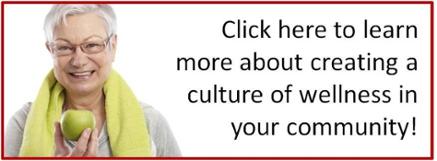 We already know that the foods you eat can affect your weight, heart, blood pressure, and certain cancers, but we also know that food and nutrition can affect your brain health. Whether it’s just improving your memory or helping to prevent Alzheimer’s disease, the foods you choose can help to make your brain healthier. Check out these six nutrition tips for brain health:
We already know that the foods you eat can affect your weight, heart, blood pressure, and certain cancers, but we also know that food and nutrition can affect your brain health. Whether it’s just improving your memory or helping to prevent Alzheimer’s disease, the foods you choose can help to make your brain healthier. Check out these six nutrition tips for brain health:
- Mediterranean diet: Long known to be the best diet for heart health, researchers now know that this diet is also best for your brain, too. Compared to those on a low-fat diet, the individuals who ate more olive oil and nuts had better memory and thinking skills. Researchers believe the benefit comes from the high amount of antioxidants consumed in the diet, along with foods that help prevent inflammation.
- Less red meat: You have heard that too much red meat (and other foods high in saturated fat like butter) isn’t good for your heart, but are those foods bad for your brain, too? Just as the fat in your diet can cause your arteries to clog, they can cause an increase in plaque formation in the brain, too. This buildup has been found to be a cause of Alzheimer’s disease. Try to decrease your consumption of red meat to 1–2 times per week.
- Fish: If you have been watching the news at all in the last 10 years, you know how much great press omega-3 fatty acids have gotten. This is mainly due to the heart-protective effects of fatty fish such as salmon, mackerel, and tuna and other sources like walnuts and flax. However, omega-3 fatty acids have also been found to be excellent for brains. From babies still in the womb all the way until death, omega-3 fatty acids are vital. They build brain cell membranes, reduce brain inflammation, promote new brain cell formation, and have been found to improve memory and mood.
- Produce power: Antioxidants aren’t just for cancer fighting. They are also useful for brain health and can be found in any of the bright-colored fruits and veggies. Swap broccoli and dark leafy greens for typical dinner-meal sides. Reach for berries and other bright-colored fruits all day long to get the benefit of a memory boost.
- Spices: New research is constantly being done about spices and their benefit. These have had some positive results when it comes to the brain: turmeric, saffron, garlic, cinnamon, and thyme. All of them are probably sitting in your spice cabinet now, so start adding them to your meals and reap the brain benefits.
- Coffee and tea: One item that can be controversial is coffee due to the effect of caffeine. However, caffeine is actually good for your brain health. It can help increase alertness and attention; however, long-term studies are still inconclusive. So in the meantime, stick to the recommendation of 400 mg or less of caffeine per day, which is the equivalent of 3 cups of drip coffee. Tea can give you caffeine along with the beneficial antioxidants, so consider switching your afternoon cup of joe to a cup of tea. (See this blog for the amount of caffeine in common foods.)
Most of these suggestions are also important for heart health, weight management, and an overall balanced diet. So if you haven’t been choosing these items on a regular basis, improving brain health is another positive reason to start!


 One of our clients put the
One of our clients put the  Fund-raising Events
Fund-raising Events
 As we grow older, we experience changes in cognitive processes, which is a normal part of aging. But in some cases these changes are severe enough to interfere with the performance of
As we grow older, we experience changes in cognitive processes, which is a normal part of aging. But in some cases these changes are severe enough to interfere with the performance of 
 What Counts as Exercise?
What Counts as Exercise?
 During my morning commute a few months ago, I switched on the radio and caught the tail end of a brief
During my morning commute a few months ago, I switched on the radio and caught the tail end of a brief